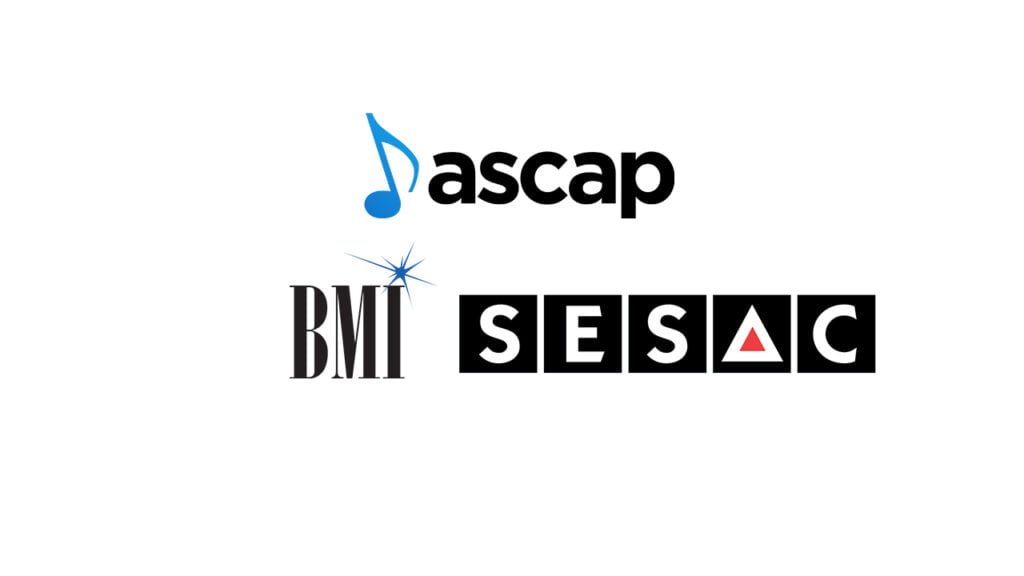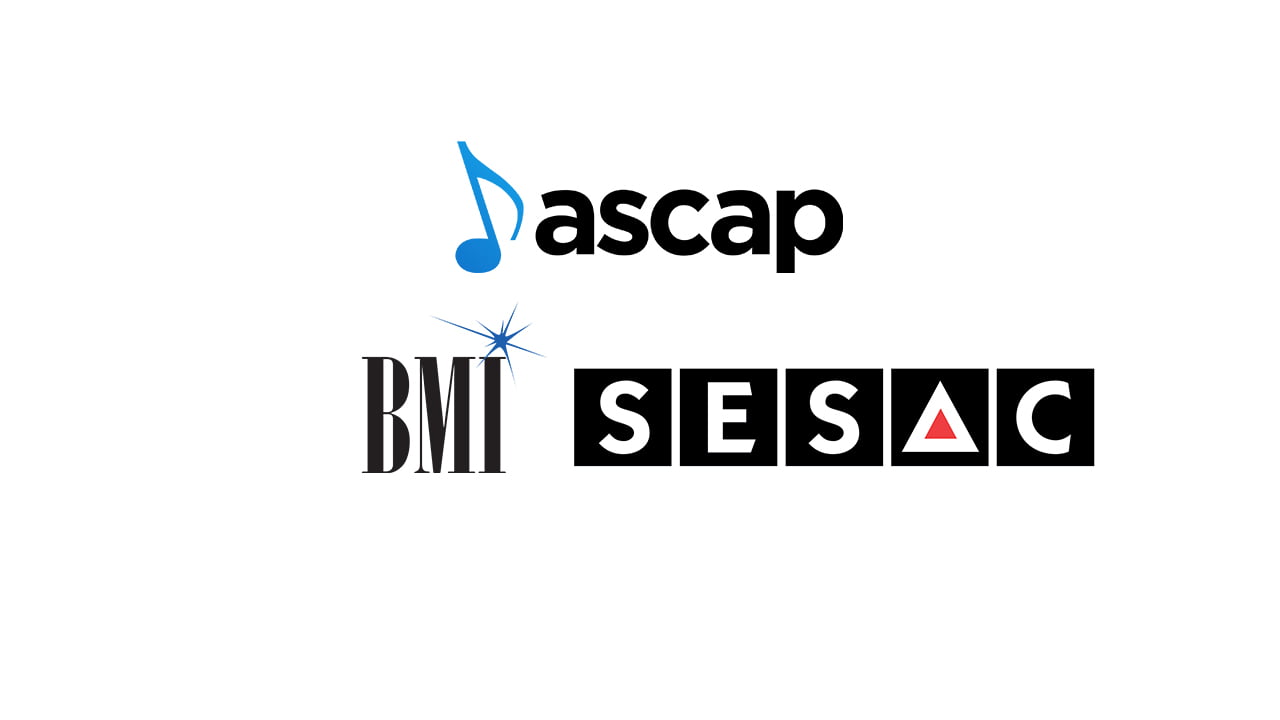Table of Contents
ASCAP vs BMI vs SESAC
Introduction to PROs
A performing rights organization (PRO) is a collective management organization that represents songwriters, composers, and music publishers in the administration of their performing rights. Performing rights refer to the right to publicly perform musical compositions, such as in live performances, broadcasts, streaming, and other public uses.
PROs play a vital role in the music industry by monitoring, collecting, and distributing royalties on behalf of their members for the public performance of their musical works. They negotiate licenses with businesses and organizations that use music publicly, such as radio stations, TV networks, live music venues, restaurants, and streaming platforms, to ensure that their members are compensated for the use of their music.
PROs also track and collect royalties from international performances through reciprocal agreements with PROs in other countries. They use advanced technology and databases to identify and track performances of their members’ works, and they distribute royalties based on various factors, such as the frequency and popularity of performances.
In addition to royalty collection and distribution, PROs also provide valuable services to their members, including copyright registration, advocacy for fair compensation and copyright protection, educational resources, and support for disputes or legal issues related to public performance rights.
Some examples of well-known performing rights organizations include ASCAP (American Society of Composers, Authors, and Publishers), BMI (Broadcast Music, Inc.), SESAC (Society of European Stage Authors and Composers), and SOCAN (Society of Composers, Authors, and Music Publishers of Canada). Each PRO has its own membership criteria, fee structures, and distribution policies, and songwriters, composers, and publishers often choose to affiliate with one or more PROs to ensure that their music is properly represented and monetized.
ASCAP vs BMI vs SESAC
Want to know which performing rights organization (PRO) to sign up for? Continue reading to learn which one will be the best choice for you.
| PRO | Founding Year | Pricing | Eligibility |
| The American Society of Composers, Authors, and Publishers (ASCAP) | 1914 | One-time, non-refundable $50 fee for each application submission. There are no annual dues/fees. | Open to all |
| Broadcast Music, Inc (BMI) | 1939 | Songwriter membership is free. Individual publishers’ application fee is $150, and publishing companies’ membership fee is $250. | Open to all |
| Society of European Stage Authors and Composers (SECSAC) | 1930 | There is no fee to join SESAC | Invitation-only |
Cost
ASCAP has the lower cost when compared to BMI. SESAC has no upfront fee, but it isn’t accessible for everyone
Pay
ASCAP and BMI openly share their royalties payment calendar; however, SESAC does not publicly disclose when they pay royalties.
ASCAP pays out between ~88% and 90% of the royalties that they collect [1],[2].
BMI also pays out approximately 88% of royalties.
Contract Length
ASCAP has a minimum, one year contact for songwriters, and BMI contracts are for two years.
Discounts
All three PROs offer discounts for other companies if you’re a member. For example, being a member of ASCAP allows you to get a discount for Doc on the Go, Bandzoogle, and on some travel expenses.
ASCAP vs BMI vs SESAC – Which one should you pick?
When it comes to choosing a PRO in the United States, there aren’t a whole lot of options. ASCAP, BMI, and SECSAC are the biggest ones and the latter is only accessible by invitation.
For most musicians in the US, that means you’ll be looking at ASCAP vs BMI. Practically speaking, you can pick either one because their isn’t much of a difference. They have nearly identical payout percentage and collect royalties from the same sources (e.g. radio stations, music venues, amusement parks, and hospitals).
According to an article on Ari’s Take, BMI pays more for sync royalties and ASCAP pays more for radio royalties, based on their experience. Take that with a grain of salt.
Common Misconceptions About PROs
There are many common misconceptions about performing rights organizations, including:
PROs are only for big-name artists
Many people believe that PROs are only for famous musicians, but this is not true. PROs collect royalties for all types of music creators, including songwriters, composers, and publishers, regardless of their level of fame or success.
PROs only collect royalties for live performances
While PROs do collect royalties for live performances, they also collect royalties for other uses of music, such as radio airplay, TV and film placements, and digital streaming. In fact, digital streaming has become one of the most important revenue streams for music creators, and PROs play a critical role in collecting and distributing these royalties.
PROs are monopolies
While it is true that PROs have a dominant position in the music licensing industry, they are not monopolies. In fact, many PROs around the world compete with each other for the right to represent music creators and collect royalties on their behalf. Moreover, in some countries, there are multiple PROs operating in the same market, which provides music creators with more choice and competition.
PROs take a percentage of all music revenue
PROs only collect royalties for specific uses of music, such as live performances, radio airplay, and streaming. They do not take a percentage of all music revenue generated by music creators. Instead, they deduct a small percentage from the royalties they collect on behalf of music creators as an administrative fee.
PROs only benefit established music creators
PROs provide benefits to all music creators, regardless of their level of success or experience. They help to ensure that music creators are fairly compensated for their work, and they provide valuable resources and support to help music creators build their careers and protect their rights.

Conclusion
Regardless of which PRO you choose, you’ll still need to use a digital distributor such as Distrokid or Landr to publish your music to streaming platforms. Read out article that compares different distributors (Distrokid vs Landr vs CdBaby vs RouteNote).
Breve Music Studios publishes music to Spotify, YouTube Music, Amazon Music and more. Follow our pages on Facebook, Instagram, Twitter, TikTok, and YouTube.
Listen to our ensembles: Breve Orchestra, Breve Music Ensemble, Breve Low Brass Ensemble, Breve Woodwind Ensemble, and Jermaine Harris on Spotify.

